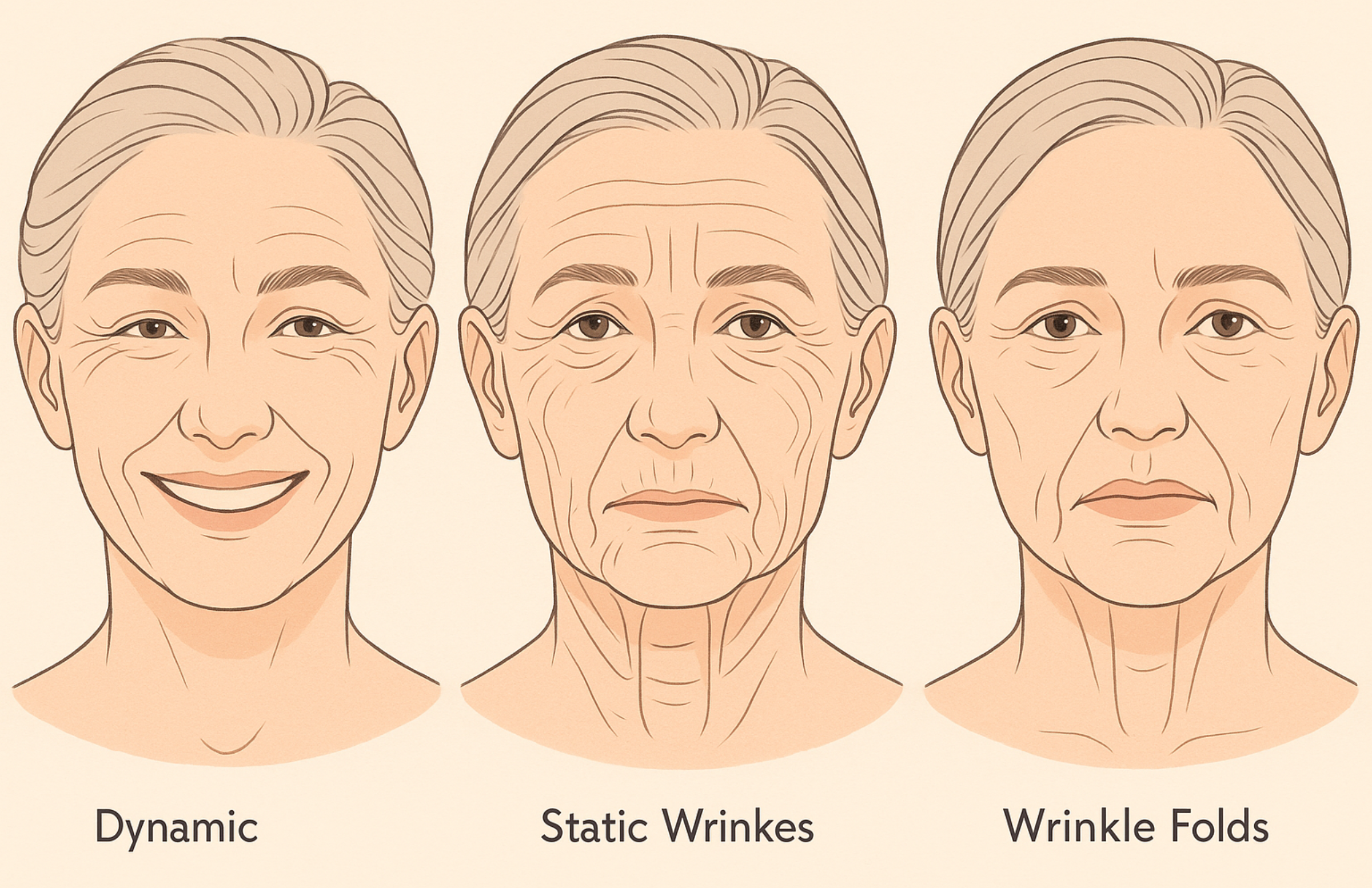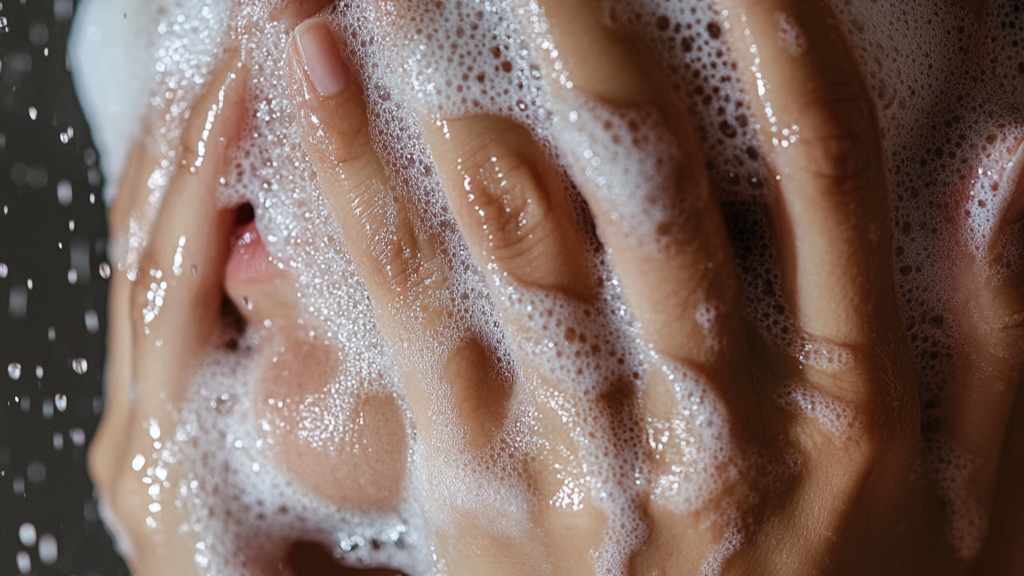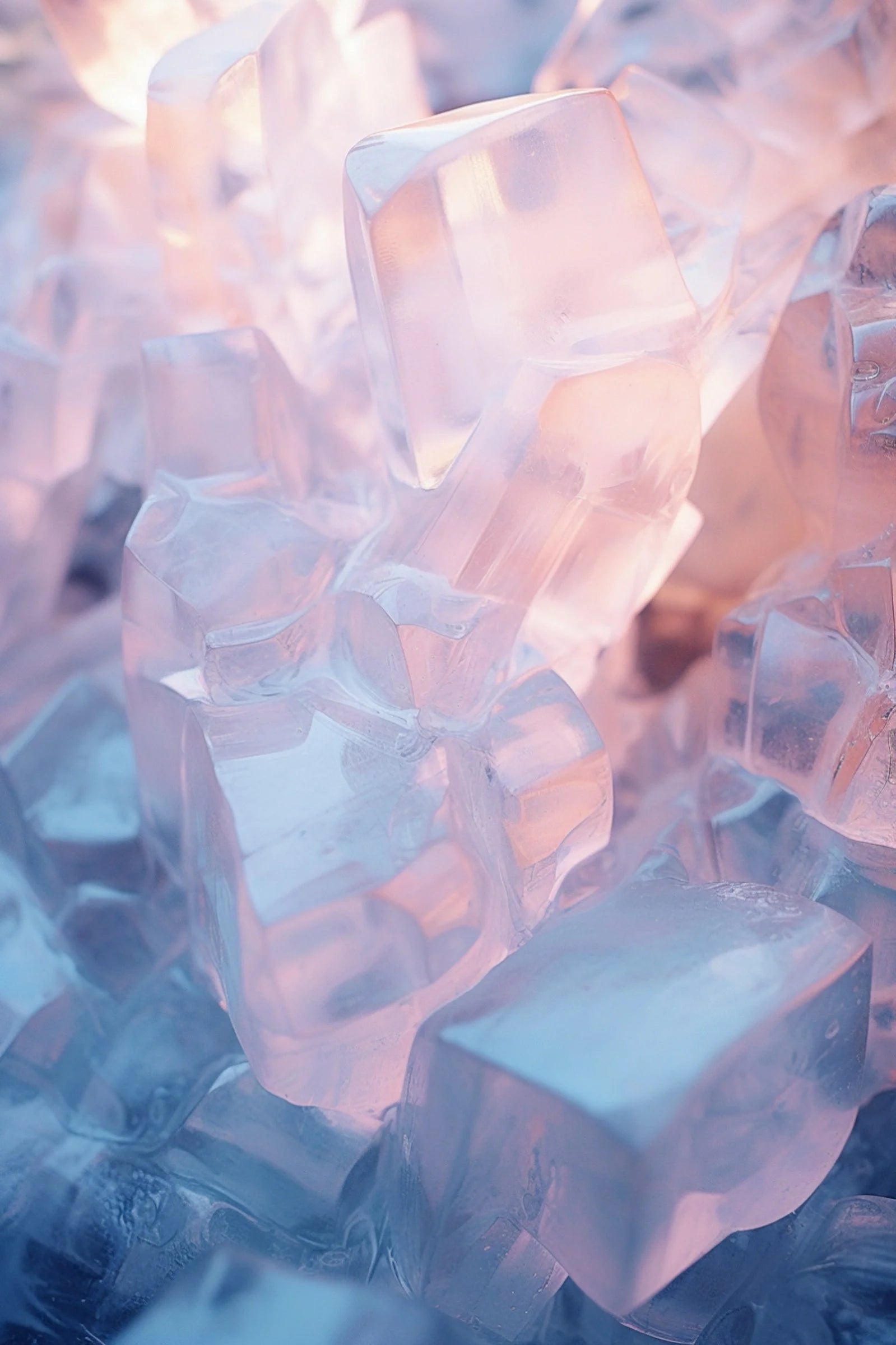

How to treat wrinkles & fine lines
Sabina JasinskiWrinkles and fine lines are probably the most common signs of skin aging: and this is a completely natural process of the skin.
With the right understanding and consistent care, you can prevent early signs, minimise their appearance, and reverse some visible damage.
Let’s take a closer look at the science, the ingredients, and the habits that truly make a difference – to help your skin feel healthy and maintain its glow over time.
Why Does Skin Develop Wrinkles?
Wrinkles and reduced elasticity are natural parts of the skin’s aging process, often caused by a combination of internal and external factors. As we age, the skin begins to lose collagen, elastin, and hydration—three key components that keep it firm, smooth, and resilient.
Some of the most common contributing factors include:
- Sun exposure (UV radiation): The #1 external cause of premature aging.
- Natural aging: Slower cell turnover and collagen breakdown over time.
- Facial expressions: Repeated movements like smiling, frowning, or squinting lead to dynamic wrinkles.
- Dehydration: Dry or dehydrated skin makes fine lines more visible.
- Lifestyle choices: Smoking, alcohol, poor diet, lack of sleep, and chronic stress all accelerate visible aging.
Your skin naturally begins to produce less collagen from your mid-20s onward. When combined with daily stressors and sun exposure, early lines and wrinkles can appear sooner than expected.
The good news? With targeted and consistent skincare—like antioxidants, peptides, and daily sunscreen—you can visibly reduce these signs and help maintain your skin’s strength and glow from the inside out.
Genes vs. Lifestyle: What Has the Biggest Impact?
While your genetics influence factors like skin type, collagen levels, and how early signs of aging appear, they’re only part of the story. Your DNA helps set the stage—but it doesn’t dictate the outcome.
Recent research continues to show that external and lifestyle factors play a much greater role in how your skin ages over time. These include:
- UV exposure (the #1 cause of premature aging)
- Air pollution, blue light, and environmental toxins
- Chronic stress, poor sleep, smoking, and poor nutrition
- Skincare habits and sun protection routines
In fact, studies suggest that up to 80–90% of visible skin aging is driven by external influences, not genetics. While this figure was originally cited in early 2000s dermatology research, recent findings continue to support the outsized role of what’s now called the skin exposome—the cumulative impact of environmental and behavioral stressors on skin health.
👉 Current Dermatology Reports, 2020
👉 Journal of Investigative Dermatology, 2020
👉 Photoaging: Review of Current Literature, 2020
The takeaway? Your daily choices have a far greater impact than your DNA. With consistent sun protection, antioxidant-rich skincare, and supportive lifestyle habits, it’s absolutely possible to slow down, soften, and even prevent the most common signs of aging—regardless of your genetic starting point.
How Sun Damage Leads to Premature Aging
Sun damage affects more than just pigment. Over long periods of time, UV radiation:
- Breaks down collagen and elastin
- Causes fine lines and wrinkles
- Leads to skin sagging and rough texture
- Triggers long-term dullness and uneven skin tone
Hyperpigmentation is usually the first visible sign of sun damage.
Read more about Hyperpigmentation here
4 TYPES OF WRINKLES
1. Dynamic Wrinkles Form from repetitive movements like frowning or smiling (e.g. crow’s feet, forehead lines).
2. Static Wrinkles Deeper lines that stay even when the face is at rest. These are often caused by collagen loss and prolonged sun exposure.
3. Wrinkle Folds Caused by sagging skin due to gravity and volume loss—like nasolabial folds around the mouth and jaw.
4. Extrinsic Wrinkles Premature wrinkles around the mouth and eyes triggered by habits like smoking and UV exposure.
Evidence-backed treatments
1. USE SUNSCREEN EVERY SINGLE DAY
Daily SPF is the most effective anti-aging practice.
🟢 Choose:
- Broad-spectrum SPF 30–50
- Physical blockers (zinc oxide or titanium dioxide) or advanced chemical filters
Bonus: formulas with niacinamide or peptides for added skin support
2. ADD COLLAGEN-BOOSTING ACTIVES
The goal is to stimulate collagen, support elasticity, and hydrate the skin consistently. Top ingredients include:
- Retinoids (Retinol, Retinal) – gold standard for softening wrinkles, increasing cell turnover
- Peptides – help signal the skin to produce collagen
- Vitamin C – protects from oxidative stress and boosts firmness
- Bakuchiol – a gentle, plant-based antioxidant
- Growth factors – stimulate skin regeneration and healing
Start slow with actives like retinoids (2–3x/week) and build up tolerance.
3. HYDRATE & PLUMP THE SKIN
Hydrated skin = smoother skin. Look for:
- Hyaluronic Acid – holds 1,000x its weight in water
- Glycerin & Panthenol – draw in moisture and soothe
- Ceramides – restore the skin barrier and reduce transepidermal water loss
- Peptides - hold on to moisture and allow the skin to heal
Layer hydrating serums under a nourishing moisturiser to seal everything in.
4. EXPLORE PROFESSIONAL TREATMENTS FOR ENHANCED RESULTS
If you’re looking to accelerate results or target deeper wrinkles, in-office procedures can offer powerful, complementary support to your skincare routine:
- Microneedling – creates micro-trauma to stimulate collagen and elastin production. Improves texture, firmness, and fine lines over time. Best in a series of treatments.
- Botox (Botulinum Toxin) – temporarily relaxes facial muscles that cause expression lines (like frown lines or crow’s feet). Works best for dynamic wrinkles.
- Dermal Fillers – restore lost volume in areas like nasolabial folds, cheeks, lips. Smooth out static wrinkles and support facial structure.
- Laser Resurfacing (e.g. Fraxel) – uses focused light to exfoliate and stimulate skin renewal. Effective for wrinkles, texture, and pigmentation.
- Radiofrequency (RF) or Ultrasound Therapy (e.g. Ultherapy) – non-invasive skin tightening that targets deeper layers to boost collagen and lift.
Always consult a licensed practitioner to assess your skin and create a customised treatment plan.
🌞 MORNING: Protect, Hydrate, and Stimulate Collagen
1. Gentle Cleanser
Prepares the skin for actives while preserving the barrier—important for aging or sensitised skin.
🟢 Choose: Low-foam, pH-balanced formulas with glycerin, panthenol, or antioxidants
🟡 Avoid stripping cleansers, which can exacerbate fine lines and dryness
💡 Especially important if you're using retinoids at night—your morning cleanse should be gentle.
-
2. Vitamin C or Peptide Serum
Both ingredients support collagen production and fight oxidative stress—but they serve slightly different roles:
- Vitamin C (ascorbic acid): Brightens, firms, and protects against UV damage
- Peptides: Signal the skin to rebuild collagen and improve elasticity
💡 Use Vitamin C in the morning for antioxidant defense, or peptides if your skin is too sensitive for ascorbic acid.
-
3. Moisturiser with Hyaluronic Acid
Plumps fine lines by drawing moisture into the skin and supporting a smoother surface.
- Look for multi-weight hyaluronic acid, glycerin, or polyglutamic acid for deep hydration
- Lightweight textures for oily skin, richer creams for dry or mature skin
-
4. Broad-Spectrum SPF 30–50
UV radiation is the #1 extrinsic cause of wrinkles. Daily SPF is non-negotiable.
🟢 Choose a broad-spectrum sunscreen with added antioxidants for maximum defense
💡 Opt for a hydrating or dewy finish for dry skin, or matte for combo/oily types
🌙 EVENING: Regenerate, Restore, and Rebuild
1. Cleanser
- Use a gentle, non-stripping formula to remove SPF and pollutants.
💡 If wearing makeup or sunscreen, consider double cleansing for a more thorough clean without over-exfoliating.
-
2. Retinoid or Bakuchiol
These are cornerstone ingredients in anti-aging routines:
- Retinoids (retinol, retinal, or adapalene): Boost cell turnover, reduce fine lines, and stimulate collagen
- Bakuchiol: A plant-based retinol alternative with less risk of irritation—great for sensitive or reactive skin
💡 Start 2–3x/week and build up slowly. Pair with hydrating serums to buffer irritation.
-
3. Hydrating Serum
A crucial layer for plumping the skin and preventing dryness from retinoids.
🟢 Look for HA, panthenol, beta-glucan, or peptides.
Helps reduce trans-epidermal water loss and enhances skin comfort
-
4. Ceramide-rich Night Cream
Supports the skin barrier overnight while reinforcing firmness and elasticity.
🟢 Look for ceramides, cholesterol, fatty acids, or centella asiatica
💡 Richer textures can help soften crepey or dehydrated areas (like under the eyes or neck)
⚠️ Active Ingredients: What to Avoid & How to Start Safely
Avoid combining retinoids with strong acids (AHAs/BHAs).
Unless your skin is experienced and tolerant, layering too many actives can lead to dryness, flaking, or barrier disruption—which accelerates the signs of aging instead of helping.
How to introduce actives safely:
- Use acids (like lactic, glycolic) on non-retinoid nights
- Buffer retinoids by applying moisturiser before or after
- Always monitor your skin and reduce frequency if irritation appears
🧘🏾♂️ Lifestyle Habits to Support Skin HEALTH
- Prioritise sleep (7–9 hrs/night) to support skin regeneration
- Eat a collagen-friendly diet – rich in vitamin C, protein, zinc, and omega-3s
- Avoid smoking and limit alcohol—both contribute to collagen breakdown
- Stay hydrated and manage stress
❌ Common Myths About WRINKLES
It’s too late to start anti-aging skincare?
Never! The skin can respond and regenerate at any age.
_
Only expensive products work!
Nope. Many affordable actives (like retinol or peptides) deliver clinical results with consistency.
_
Moisturisers erase wrinkles!
We wish! They hydrate—but only actives (like retinoids or peptides) can truly stimulate collagen.
💚 Final Thoughts
Wrinkles and fine lines don’t define your beauty—but caring for your skin helps it look and feel its best. With a mix of sun protection, targeted ingredients, and consistent habits, smoother and firmer skin is entirely possible.
Your skin is always evolving—and so can your skincare routine. Keep showing up for it daily.
Because age is just a number—and glowing skin is timeless.
Guides to Healthier Skin:
Skin Concerns Series
From hyperpigmentation to hydration, the Skin Concerns Series by Know to Glow breaks down common skincare issues with clarity, science, and strategy.
Each guide is designed to help you understand the root causes, avoid common mistakes, and build a routine that actually works.
KNOW TO GLOW = SCIENCE+EDUCATION
Know to Glow is both a shop and a hub for essential skincare knowledge. Our goal is to help you achieve healthy skin by understanding the biology behind skincare—what nourishes it and what can compromise it.




